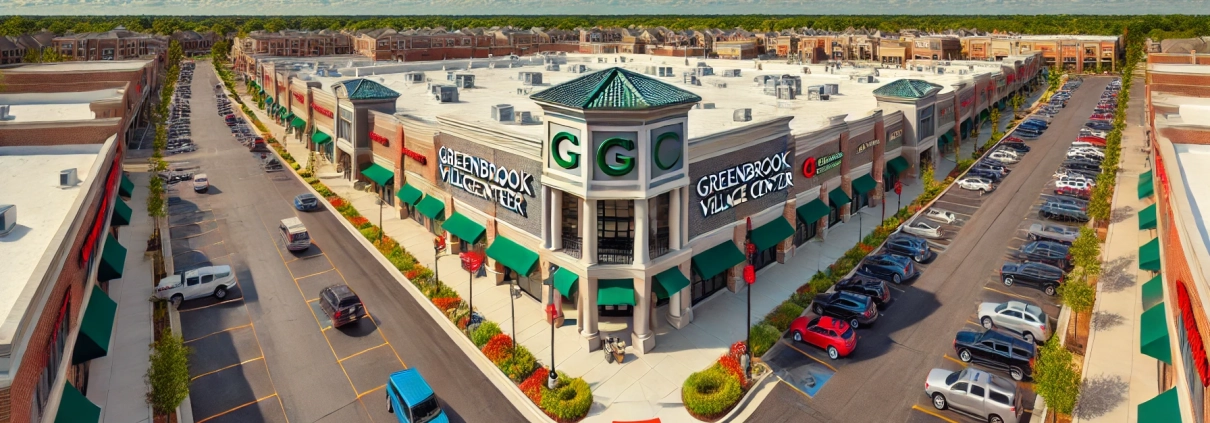Debt Covenants
Debt covenants are essentially rules written into the loan documents which govern the behavior of a borrower once the debt is issued. There are 2 general types of covenants which either permit (affirmative covenant) or restrict (negative covenant) the borrower’s ability to perform certain actions. Should the borrower break a covenant, the lender typically has the legal right to call back the loan (i.e. demand repayment).
Putting ‘Debt Covenants’ in Context
Bluegrass Capital Partners, a real estate private equity firm based in Louisville, Kentucky, is evaluating a value-add acquisition of a 120,000 square foot grocery-anchored retail center, Greenbrook Village Center, located in suburban Louisville. The property, built in the early 2000s, has a strong anchor tenant in a national grocery chain, but the inline spaces are about 30% vacant due to recent tenant turnover. Bluegrass Capital sees an opportunity to reposition the center by filling the vacancies, upgrading the façade, and enhancing the tenant mix, aiming for a significant increase in net operating income (NOI) over the next few years.
To finance this acquisition, Bluegrass Capital secures a $12 million loan from a regional bank. As part of the loan agreement, the lender imposes several debt covenants to protect their investment.
Debt Covenants in the Loan Agreement
The loan document contains both affirmative and negative covenants. These covenants establish specific rules that Bluegrass Capital must follow during the hold period to avoid breaching the terms of the loan.
Affirmative Covenants:
- Minimum Debt Service Coverage Ratio (DSCR): Bluegrass Capital is required to maintain a DSCR of at least 1.25x throughout the loan term. This means that the property’s NOI must be at least 1.25 times the debt service payments.
- Quarterly Financial Reporting: Bluegrass Capital is required to submit quarterly non-audited financial statements to the lender, providing transparency into the property’s financial performance.
Negative Covenants:
- Restrictions on Additional Debt: Bluegrass Capital cannot take on additional debt secured by the Greenbrook Village Center without prior approval from the lender.
- Prohibition on Major Tenant Lease Amendments: The firm is prohibited from making significant changes to the lease agreement with the grocery anchor tenant (e.g., rent reduction, extended free rent period) without lender consent.
Breach of Debt Covenants
During the second year of ownership, Bluegrass Capital encounters a challenge. Due to delays in securing new tenants and higher-than-expected renovation costs, the property’s NOI temporarily drops, causing the DSCR to fall to 1.15x, below the required 1.25x covenant. The lender quickly flags this breach of covenant and notifies Bluegrass Capital that they are in default.
However, instead of demanding immediate repayment of the loan, the lender works with Bluegrass Capital to resolve the issue. They grant a temporary waiver of the DSCR requirement for six months, giving Bluegrass time to lease up the vacant spaces and increase NOI. In exchange, Bluegrass agrees to pay a small fee and to submit more frequent financial updates until the covenant is back in compliance.
Conclusion
This hypothetical scenario illustrates the importance of debt covenants in a real estate deal. For Bluegrass Capital, the debt covenants outlined in the loan agreement set important financial and operational boundaries that ensure the property remains a viable investment for both the borrower and the lender. While breaching a covenant could lead to serious consequences such as loan default, lenders may sometimes work with borrowers, especially if they believe the issue can be resolved and the asset’s performance can be improved.
Frequently Asked Questions about Debt Covenants
What are debt covenants in real estate loans?
Debt covenants are rules written into loan documents that govern a borrower’s actions after a loan is issued. They are designed to protect the lender’s investment.
What are the two main types of debt covenants?
The two types are affirmative covenants, which require the borrower to perform certain actions, and negative covenants, which restrict specific borrower actions.
What is an example of an affirmative debt covenant?
An example is maintaining a minimum DSCR (Debt Service Coverage Ratio) of 1.25x and submitting quarterly financial statements, as required in the Bluegrass Capital scenario.
What is an example of a negative debt covenant?
Examples include restrictions on taking additional debt secured by the property and prohibiting lease amendments with major tenants without lender approval.
What happens if a borrower breaches a debt covenant?
The lender typically has the legal right to call the loan—i.e., demand repayment. However, in some cases, they may grant a waiver or renegotiate terms if the breach is temporary.
How did the lender respond to a DSCR breach in the example?
The lender issued a default notice but chose to work with Bluegrass Capital by granting a six-month DSCR waiver in exchange for a fee and more frequent reporting.
Why are debt covenants important in CRE financing?
They provide a framework for maintaining financial discipline and help protect the lender’s interests by minimizing risk during the loan term.
Click here to get this CRE Glossary in an eBook (PDF) format.

